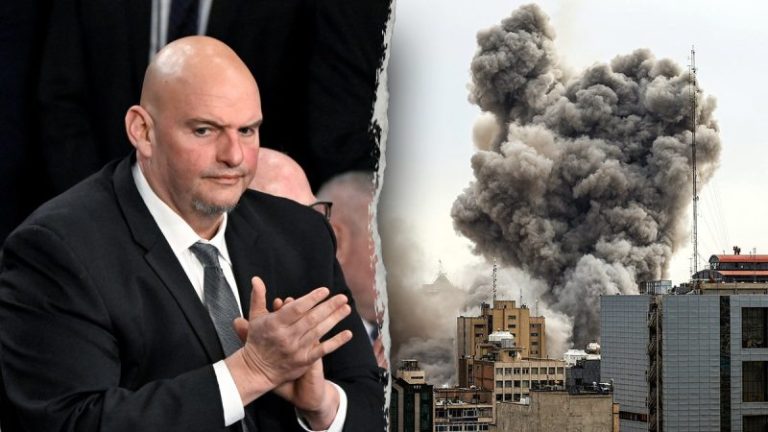Studio Display XDR is the world’s best pro display, featuring a 27-inch 5K Retina XDR display with a mini-LED backlight, 2000 nits of peak HDR brightness, and a 120Hz refresh rate
Apple® today announced a new family of displays engineered to pair beautifully with Mac® and meet the needs of everyone, from everyday users to the world’s top pros. The new Studio Display ® features a 12MP Center Stage® camera, now with improved image quality and support for Desk View; a studio-quality three-microphone array; and an immersive six-speaker sound system with Spatial Audio. It also now includes powerful Thunderbolt 5 connectivity, providing more downstream connectivity for high-speed accessories or daisy-chaining displays. The all-new Studio Display XDR takes the pro display experience to the next level. Its 27-inch 5K Retina® XDR display features an advanced mini-LED backlight with over 2,000 local dimming zones, up to 1000 nits of SDR brightness, and 2000 nits of peak HDR brightness, in addition to a wider color gamut, so content jumps off the screen with breathtaking contrast, vibrancy, and accuracy. With its 120Hz refresh rate, Studio Display XDR is even more responsive to content in motion, and Adaptive Sync dynamically adjusts frame rates for content like video playback or graphically intense games. Studio Display XDR offers the same advanced camera and audio system as Studio Display, as well as Thunderbolt 5 connectivity to simplify pro workflow setups. The new Studio Display with a tilt-adjustable stand starts at $1,599, and Studio Display XDR with a tilt- and height-adjustable stand starts at $3,299. Both are available in standard or nano-texture glass options, and can be pre-ordered starting tomorrow, March 4, with availability beginning Wednesday, March 11.
‘Apple has led the industry in delivering the world’s most advanced displays for pros to do their life’s best work, and today we do that once again with the introduction of the new Studio Display family,’ said John Ternus, Apple’s senior vice president of Hardware Engineering. ‘Studio Display gets even better with a new 12MP Center Stage camera and powerful Thunderbolt 5 connectivity. And the Studio Display XDR is a huge leap forward for XDR technology, with a mini-LED backlight, 2000 nits of peak HDR brightness, advanced color accuracy, and a 120Hz refresh rate, transforming workflows like filmmaking, design and print, and 3D animation. It’s by far the world’s best pro display.’
Studio Display — the Perfect Companion to Mac
The new Studio Display pairs excellent visual quality with compelling features that deliver a great experience when connected to a Mac across a range of professional workflows — from photo and video editing to coding, music production, and everyday tasks. The stunning 27-inch 5K Retina display boasts over 14 million pixels, 600 nits of brightness, and P3 wide color for rich, true-to-life imagery. Studio Display includes a 12MP Center Stage camera, now with Desk View; a studio-quality three-microphone array; and an incredible six-speaker sound system with four force-cancelling woofers that deliver 30 percent deeper bass than the previous generation, plus two high-performance tweeters for immersive audio. Studio Display also brings Thunderbolt 5 connectivity with two ports, so users can daisy-chain up to four Studio Display models for a combined nearly 60 million pixels, or connect high-speed accessories. 1 In addition, two USB-C ports can be used for peripherals and charging. With the included Thunderbolt 5 Pro cable, users get a convenient all-in-one connection that offers up to 96W of charging power — enough to fast-charge a 14-inch MacBook Pro®. 2 Studio Display is available with standard glass or optional nano-texture glass for challenging lighting conditions. It comes with a tilt-adjustable stand, or can be configured with a tilt- and height-adjustable stand or a VESA mount adapter for custom desk setups.
Studio Display XDR — the World’s Best Pro Display
The all-new Studio Display XDR delivers the most advanced display technology and a robust set of features for pro users who need the ultimate front-of-screen performance. With 2000 nits of peak HDR brightness, a 1,000,000:1 contrast ratio, P3 and Adobe RGB wide color gamuts, a 120Hz refresh rate, Adaptive Sync, new DICOM medical imaging presets, a powerful combination of camera and audio, and Thunderbolt 5 connectivity, Studio Display XDR is designed for workflows like HDR video editing, 3D rendering, and diagnostic radiology. 2
Advanced XDR Display Technology
Studio Display XDR features a stunning 27-inch 5K Retina XDR display with 5120-by-2880 resolution, offering exceptional detail and clarity. The mini-LED backlight utilizes 2,304 local dimming zones that enable extreme contrast. Studio Display XDR also delivers up to an outstanding 1000 nits of SDR brightness, 2000 nits of peak HDR brightness, and a 1,000,000:1 contrast ratio. This wide dynamic range — from the brightest brights to the deepest blacks — makes HDR content pop off the screen while virtually eliminating distracting halo and blooming effects.
Enhanced Color Accuracy
Ideal for print and design professionals, Studio Display XDR adds Adobe RGB color gamut support, in addition to P3 wide color, making it an even better reference display. This results in more than 80 percent Rec. 2020 coverage for HDR video editing and color grading. Both P3 and Adobe RGB are accessible from the same default preset, streamlining pro workflows that frequently switch between color spaces.
Smooth 120Hz Refresh Rate and Adaptive Sync
Studio Display XDR features a 120Hz refresh rate, enabling smooth, ultra-responsive motion. Adaptive Sync supports a continuously variable refresh rate between 47Hz to 120Hz, making gaming more fluid with faster frame delivery and lower display latency.
Innovative DICOM Medical Imaging
Today, Apple introduces new DICOM medical imaging presets and the Medical Imaging Calibrator to enable use in diagnostic radiology, allowing radiologists to view diagnostic images directly on Studio Display XDR. 2 Many medical professionals already use Mac for their office or home setups, and Studio Display XDR offers a versatile alternative to single-purpose medical imaging displays, with seamless display mode switching. The Medical Imaging Calibrator on macOS® is pending FDA clearance and is expected to be available soon in the U.S. For decades, healthcare professionals and developers have taken advantage of Apple’s innovative products and frameworks to help achieve better patient outcomes, broaden research opportunities, and improve efficiency across healthcare systems. Apple continues to innovate and collaborate with the healthcare community on solutions to ultimately improve care for their patients.
Powerful Combination of Camera, Audio, and Thunderbolt 5 Connectivity
Studio Display XDR features a 12MP Center Stage camera that keeps users centered in the frame as they move. Video calls become more engaging with Desk View, which simultaneously displays the user and a top-down view of their desk — great for demonstrating a creative project. It also includes a studio-quality three-microphone array with directional beamforming and an immersive six-speaker sound system with support for Spatial Audio.
Studio Display XDR also features Thunderbolt 5 connectivity, with a second port for connecting downstream high-speed accessories or daisy-chaining other displays. And with two additional USB-C ports for even more connectivity, it can act as a Thunderbolt hub, keeping a workspace free of clutter while offering up to 140W of charging power through the included Thunderbolt 5 Pro cable — enough to fast-charge a 16-inch MacBook Pro. 3
Versatile Stand and Accessories
Studio Display XDR includes a tilt- and height-adjustable stand to meet the needs of a variety of workspaces. With a height range of 105mm, the stand features a sophisticated counterbalancing arm that makes the display feel weightless, and as users adjust it, the display stays precisely in place. An optional VESA mount adapter is available for those who prefer to use VESA-compatible stands, mounts, and arms for a customized desk setup.
Studio Display Family and the Environment
Studio Display and Studio Display XDR were built with the environment in mind, and bring Apple even closer to reaching its ambitious plan to be carbon neutral across its entire footprint by 2030. Both are made with recycled content, including 100 percent recycled aluminum in the stand and 80 percent recycled glass in the standard glass option. Studio Display and Studio Display XDR are designed to be durable, repairable, and also offer industry-leading software support, while meeting Apple’s high standards for energy efficiency and safe chemistry. The paper packaging is 100 percent fiber-based and was designed to collapse so it can be easily recycled. 4
Pricing and Availability
- Studio Display starts at $1,599 (U.S.) and $1,499 (U.S.) for education. Studio Display XDR replaces Pro Display XDR and starts at $3,299 (U.S.) and $3,199 (U.S.) for education.
Apple revolutionized personal technology with the introduction of the Macintosh in 1984. Today, Apple leads the world in innovation with iPhone, iPad, Mac, AirPods, Apple Watch, and Apple Vision Pro. Apple’s six software platforms — iOS, iPadOS, macOS, watchOS, visionOS, and tvOS — provide seamless experiences across all Apple devices and empower people with breakthrough services including the App Store, Apple Music, Apple Pay, iCloud, and Apple TV. Apple’s more than 150,000 employees are dedicated to making the best products on earth and to leaving the world better than we found it.
Footnotes
1 Users can daisy-chain up to four Studio Display models with a MacBook Pro with M5 Max.
2 The Medical Imaging Calibrator is pending FDA review and is expected to be available soon. The medical imaging presets should not be used for diagnostic purposes unless the display has been calibrated using the Medical Imaging Calibrator on macOS and paired with a compatible DICOM viewer. The presets are available on Studio Display XDR and are intended for use by medical professionals. Not intended for use in mammography.
3 Charge time varies with settings and environmental factors; actual results will vary.
4 Breakdown of U.S. retail packaging by weight. Adhesives, inks, and coatings are excluded from calculations.
NOTE TO EDITORS: For additional information visit Apple Newsroom ( www.apple.com/newsroom ), or email Apple’s Media Helpline at media.help@apple.com .
© 2026 Apple Inc. All rights reserved. Apple, the Apple logo, Mac, Studio Display, Studio Display XDR, Retina, Center Stage, MacBook Pro, macOS, Apple Store, Magic Keyboard, Touch ID, Magic Trackpad, Magic Mouse, AppleCare, AppleCare+, AppleCare One, Apple Card, and Daily Cash are trademarks of Apple. Other company and product names may be trademarks of their respective owners.
View source version on businesswire.com: https://www.businesswire.com/news/home/20260303051854/en/
Lizette Viviana Du Pond
Apple
ldupond@apple.com
Starlayne Meza
Apple
starlayne_meza@apple.com










